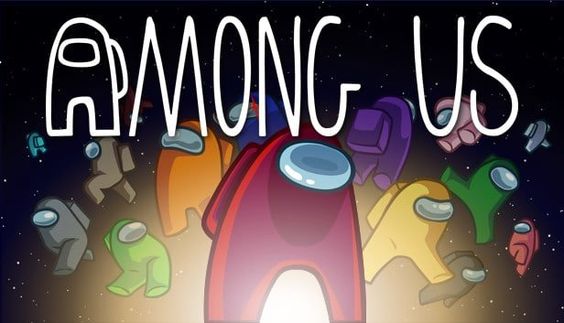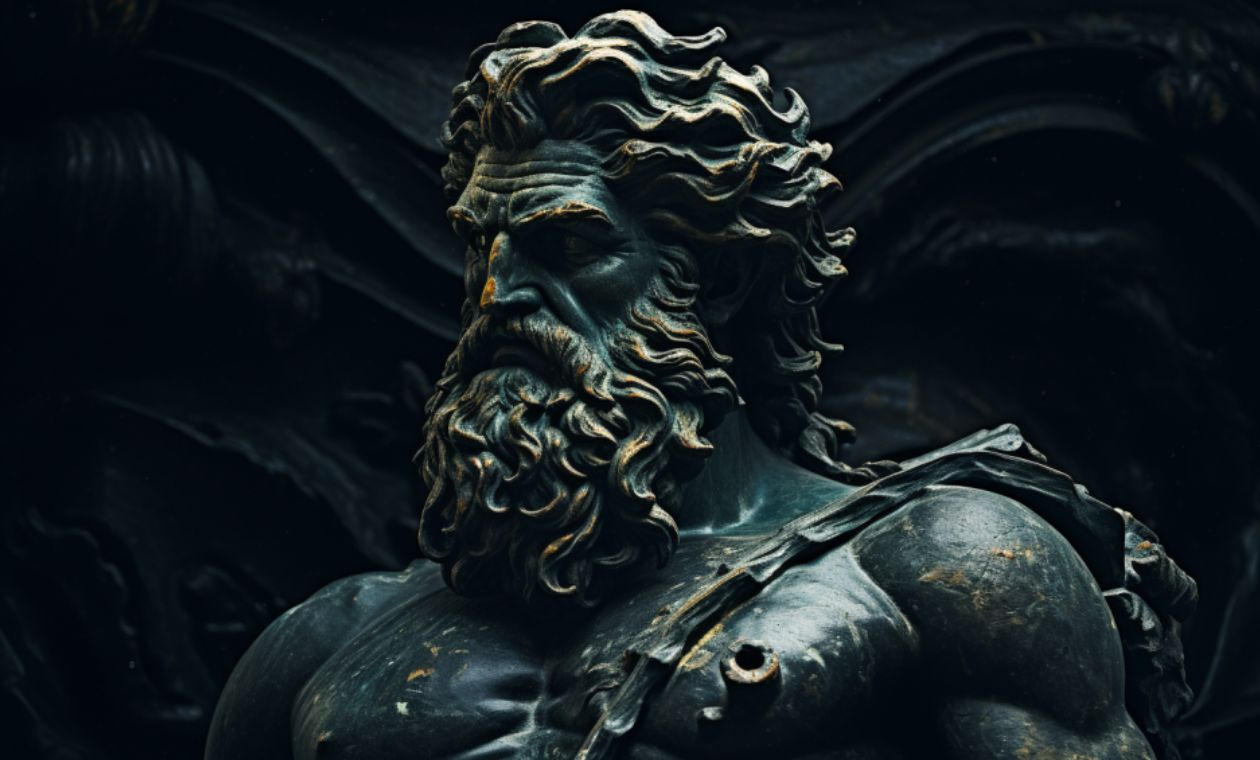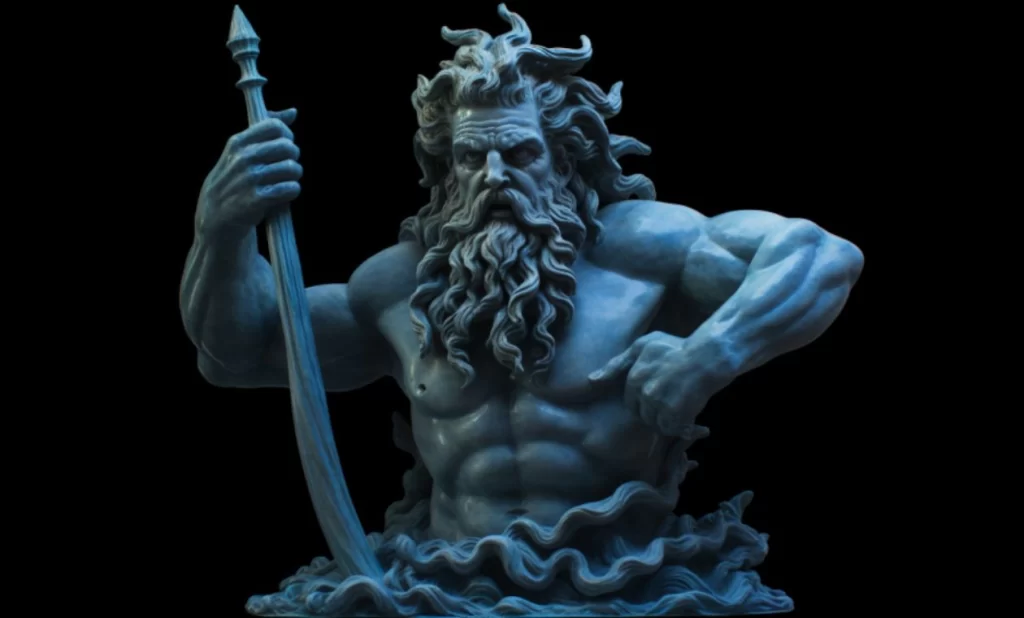
Neptune, a prominent figure in Roman mythology, holds dominion over the sea and earthquakes, wielding immense power and influence. As the Roman counterpart of the Greek god Poseidon, Neptune symbolizes the raw forces of water and seismic activity. In this article, we will delve into the origins and symbolism of Neptune, explore captivating mythological stories associated with him, uncover the worship and festivals dedicated to his name, examine his influence in art and culture, and consider his presence in modern interpretations. Join us on a journey through the captivating realm of Neptune, the mighty god of the sea and earthquakes.
Origins and Symbolism
In Roman mythology, Neptune emerged as a significant deity, closely linked to the Greek god Poseidon. The Romans often identified their gods with their Greek counterparts, adopting much of their mythology. Neptune, originally known as Neptunus, embodied the powerful forces of water and shared many attributes and characteristics with Poseidon.
According to mythological accounts, Neptune was born to Saturn and Ops, making him one of the renowned Titans. When the Titans were overthrown by the Olympians, Neptune, along with his brothers Jupiter (Zeus in Greek mythology) and Pluto (Hades in Greek mythology), emerged as one of the triumphant rulers of the universe. Each brother was assigned a specific domain to govern, with Neptune’s realm encompassing the vast depths of the sea.
Neptune’s association with Poseidon extended beyond their shared domain over the sea. Both gods possessed similar attributes and powers, such as the ability to summon and control the waters, command sea creatures, and create storms at will. They were revered as mighty and unpredictable deities, capable of wielding immense power over the natural elements. The overlapping traits and characteristics between Neptune and Poseidon highlight the influence of Greek mythology on the Roman pantheon.
While Neptune and Poseidon were regarded as distinct deities in their respective mythologies, the Romans readily equated the two, merging their narratives and attributions. This syncretism allowed Neptune to assume a significant role within the Roman pantheon and become an integral part of Roman religious and cultural practices.
The fusion of Neptune and Poseidon’s mythologies not only solidified Neptune’s position as the god of the sea in Roman mythology but also created a rich tapestry of stories and legends that contributed to his enduring legacy.
Symbolism behind Neptune
Neptune’s domain over the sea carries profound symbolism within Roman mythology, reflecting the awe-inspiring power and vastness of the waters. As the ruler of the seas, Neptune represents both the serene tranquility and the tempestuous nature of the ocean.
Power and Control: Neptune’s dominion over the sea symbolizes his unparalleled power and control over a force that is essential to life. Just as the sea holds immense energy and potential, Neptune’s authority over it reflects his ability to harness and channel that power.
Transformation and Renewal: The sea is often associated with transformation and renewal, as it ebbs and flows with the tides. Similarly, Neptune embodies these qualities, as he possesses the ability to cause dramatic shifts in the natural world. His association with the sea reflects the cyclical nature of life, where change and renewal are constant.
Mystery and Depth: The vast expanse of the sea represents the unknown and the depths of the subconscious. Neptune’s domain signifies the mysteries that lie beneath the surface, both in the physical and metaphorical sense. It highlights the enigmatic aspects of life and the potential for hidden treasures or dangers lurking beneath the waves.
Fluidity and Adaptability: Water is a symbol of adaptability and flexibility, as it takes the shape of its container and flows around obstacles. Neptune’s rulership over the sea embodies these qualities, symbolizing the need to be adaptable and go with the flow in the face of challenges and changes.
Nurturing and Fertility: The sea is a source of sustenance and life, providing nourishment and fertility to the land and its inhabitants. In this context, Neptune’s control over the waters represents his role as a nurturer and provider, sustaining life and supporting the natural cycles of growth and abundance.
Neptune’s symbolism as the ruler of the waters encompasses a range of meanings, including power, transformation, mystery, adaptability, and nurturing. Together, these symbols weave a captivating narrative that reflects the profound influence of the sea and its connection to the human experience.
Significance of Earthquakes in Relation to Neptune
In Roman mythology, Neptune’s association with earthquakes highlights his role as a powerful and occasionally unpredictable deity. Earthquakes, with their ability to shake the very foundations of the Earth, serve as a symbol of Neptune’s immense strength and influence over the natural world.
Display of Power: Earthquakes are awe-inspiring demonstrations of raw power, capable of causing destruction and reshaping landscapes. Neptune’s association with earthquakes underscores his dominion over the Earth’s crust and his ability to unleash immense energy. It signifies his role as a god of immense strength and highlights his capability to exert control over the terrestrial realm.
Unpredictability and Volatility: Earthquakes are often sudden and unpredictable, occurring without warning and disrupting the normal course of life. This element of unpredictability is reflected in Neptune’s depiction as a deity with a capricious nature. Just as earthquakes can strike without apparent cause or pattern, Neptune’s actions and decisions may be influenced by his ever-changing whims and emotions.
Symbolic Connection to the Sea: Earthquakes can have indirect connections to Neptune’s realm, the sea. Seismic activities beneath the ocean floor can trigger tsunamis, creating massive waves that wreak havoc along coastal areas. This connection further solidifies Neptune’s domain over both the sea and the forces that shape the Earth’s crust.
Symbol of Tumultuous Emotions: In a metaphorical sense, earthquakes can symbolize emotional upheaval and turmoil. Neptune, as a god associated with the sea and its ever-changing moods, embodies the fluctuating nature of human emotions. Just as earthquakes disrupt the stability of the Earth, Neptune’s influence can unsettle and stir intense emotions within individuals.
Role in Mythological Narratives: Earthquakes often play a role in mythological stories where Neptune is involved. These stories showcase his power and illustrate the consequences of challenging or defying his authority. Earthquakes serve as reminders of Neptune’s wrath and his ability to unleash devastating forces when provoked.
Mythological Stories
The Creation of Horses:
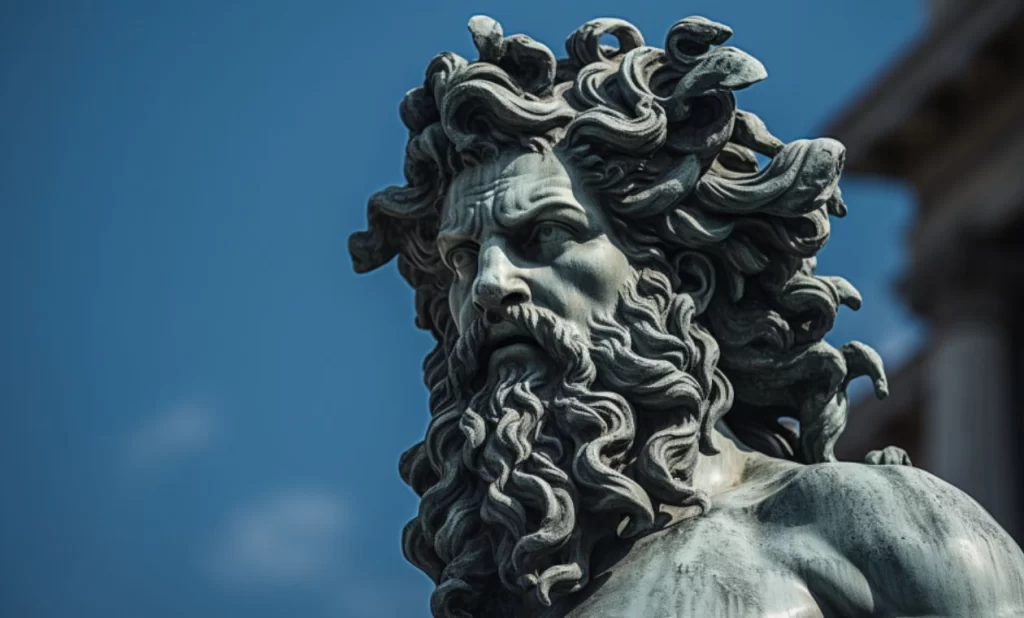
In the realm of Roman mythology, there is a fascinating tale that speaks of Neptune’s creative prowess and his desire to console the grieving goddess, Demeter. This story revolves around the creation of horses, a majestic creature that would captivate the world.
At the time, Demeter, the goddess of agriculture and fertility, was consumed by sorrow. Her beloved daughter, Persephone, had been abducted by Pluto, the god of the Underworld. Demeter’s heartache caused the earth to wither and fall into a deep slumber, leaving humanity in a state of desperation.
Witnessing Demeter’s sorrow, Neptune, the god of the sea and earthquakes, felt compelled to bring solace to the grieving goddess. He yearned to uplift her spirits by creating something extraordinary, a creature that would embody strength and beauty.
With a resolute determination, Neptune brandished his mighty trident and struck it against a rocky terrain. As the trident made contact with the earth, a powerful surge of energy rippled through the ground. Suddenly, a gushing spring of water erupted from the very spot Neptune had struck.
From this wondrous spring, Neptune conjured forth the first horse. It emerged from the water, its mane flowing like the waves of the sea, and its eyes gleaming with a fiery spirit. The horse possessed grace and power, its muscular body reflecting its untamed spirit.
Neptune approached Demeter, leading the magnificent horse before her. With a gentle touch, he presented this extraordinary creature as a gift, a symbol of solace and hope. The horse’s beauty and strength mesmerized Demeter, momentarily lifting her sorrow and bringing a smile to her face.
In that moment, the creation of horses became a testament to Neptune’s creative abilities and his role as a benevolent deity. The horse, with its swiftness and endurance, would become a companion to humanity, aiding in transportation, agriculture, and warfare.
The tale of the creation of horses not only showcases Neptune’s imaginative powers but also highlights the interconnectedness of the gods in Roman mythology. Neptune’s act of compassion brought solace to Demeter and bestowed upon the world a magnificent creature that would forever be cherished and revered.
To this day, horses continue to symbolize grace, strength, and the harmonious bond between humans and nature—a testament to Neptune’s gift and his enduring legacy as the god who conjured forth the first horse from the depths of his creative spirit.
The Odyssey:
Within the timeless epic poem, “The Odyssey” by Homer, the sea god Neptune takes center stage as a formidable force against the hero, Odysseus, on his arduous journey homeward from the Trojan War. Neptune’s role in this tale showcases both his vengeful nature and his ability to wield power over the sea to influence the fate of mortals.
Neptune’s wrath is ignited by the actions of Odysseus, who blinds Polyphemus, a Cyclops and son of the sea god. Seeking revenge for his son’s injury, Neptune unleashes his fury upon Odysseus, ensuring that his journey home will be fraught with challenges and obstacles.
As Odysseus and his loyal companions set sail, Neptune conjures raging storms, sending towering waves crashing upon their ships. Their vessels are battered, scattered, and wrecked, turning the sea into a treacherous abyss. Odysseus and his crew are faced with the wrath of Neptune, testing their resilience, endurance, and determination to the limits.
With each step closer to his homeland, Odysseus encounters further trials orchestrated by Neptune. His journey is prolonged, and his patience is tested as he navigates through dangerous encounters with mythical creatures, navigational hazards, and the cunning schemes of vengeful gods.
Yet, despite Neptune’s relentless interference, Odysseus perseveres. Through wit, bravery, and the guidance of various gods and goddesses, Odysseus continues to strive for his ultimate goal: reuniting with his faithful wife, Penelope, and reclaiming his rightful place as the king of Ithaca.
Neptune’s role in “The Odyssey” serves as a reminder of his power and influence as the god of the sea. He symbolizes the untamable forces of nature and the challenges that await mortals who dare to defy the gods. His wrath demonstrates the consequences of crossing a deity and the lengths to which Neptune will go to assert his dominion over the vast waters.
As Odysseus endures the trials set forth by Neptune, his journey becomes not only a physical odyssey but also a test of character, resilience, and the enduring spirit of human determination. It is through this epic tale that Neptune’s vengeful nature and his ability to shape the fate of mortals are brought to life, leaving an indelible mark on the mythological landscape.
The Rape of Medusa:
Within the realm of Roman mythology, a tragic tale unfolds, revealing Neptune’s impulsive and lustful nature in the story of the rape of Medusa. This account sheds light on the consequences of Neptune’s actions and the transformative punishment inflicted upon the once-beautiful mortal woman.
Medusa, renowned for her striking beauty, caught the attention of many gods, including Neptune, the god of the sea. Impelled by desire, Neptune could not resist his longing and succumbed to his impulsive urges. In an act of violation, he sought Medusa’s affections within the sacred confines of Athena’s temple.
The defilement of her sacred space enraged Athena, the goddess of wisdom and war, who held Medusa in high regard. In retaliation for the transgression committed by Neptune, Athena enacted a dreadful punishment. She transformed Medusa’s radiant locks into a writhing tangle of venomous snakes, forever cursing her with a monstrous appearance.
No longer a vision of beauty, Medusa’s once captivating gaze now turned all who encountered it into stone. She became a fearsome creature, an embodiment of terror and despair. Alone and isolated, she roamed the earth, burdened by the weight of her cursed existence.
This story serves as a cautionary tale, illustrating the consequences that befall those who succumb to unchecked desires and violate sacred spaces. Neptune’s impulsive actions, driven by lust, led to the transformation of Medusa, forever altering her fate and condemning her to a life of loneliness and despair.
Through the rape of Medusa, the story showcases Neptune’s flawed nature, highlighting the darker aspects of his character. It serves as a reminder of the complexities and flaws within the pantheon of gods and reinforces the idea that even divine beings are not immune to moral failings.
Medusa’s tragic transformation and the subsequent consequences of Neptune’s actions stand as a testament to the power of divine justice and the price that must be paid for transgressions committed against the gods. This tale serves as a cautionary reminder of the lasting impact of impulsive and harmful actions, even among the deities themselves.
The Contest with Minerva:
In the annals of Roman mythology, a tale unfolds that depicts Neptune’s competitive spirit and his association with the sea. This story recounts a contest between Neptune and the goddess Minerva (Athena) to determine which deity would become the patron of a newly constructed city.
As the city was being established, its citizens found themselves torn between the allure of the sea and the promise of abundant harvests. In their dilemma, they sought the aid of the gods to guide them in making the crucial decision of choosing a patron deity.
Neptune, recognizing the opportunity to assert his dominance and claim the city as his domain, eagerly accepted the challenge. On the appointed day, he stood before the citizens, his trident in hand, ready to display his power and win their favor.
With a mighty thrust of his trident, Neptune struck the ground, causing the earth to tremble. Suddenly, a saltwater spring burst forth, its waves crashing against the shores. The citizens marveled at this display of Neptune’s dominion over the sea, acknowledging the allure and grandeur of his gift.
However, Minerva, the goddess of wisdom and strategic warfare, was not to be outdone. Stepping forward, she poised her spear and struck a nearby rock with precision. To the astonishment of all, an olive tree emerged, its branches reaching skyward and its leaves shimmering in the sunlight.
The citizens found themselves torn between the awe-inspiring power of Neptune’s sea and the practical benefits of Minerva’s olive tree. Deliberating on the values they cherished most, they ultimately deemed Minerva’s gift more valuable. The olive tree symbolized peace, prosperity, and abundance, providing sustenance, oil, and a foundation for their agricultural pursuits.
Though Neptune lost the contest, his participation showcased his association with the sea and his competitive nature. Even in defeat, he remained a formidable deity, ever ready to assert his dominion over the vast waters. This tale serves as a reminder of Neptune’s role as the god of the sea and his unwavering desire to establish his presence in the lives and destinies of mortals.
Festivals Dedicated to Neptune:
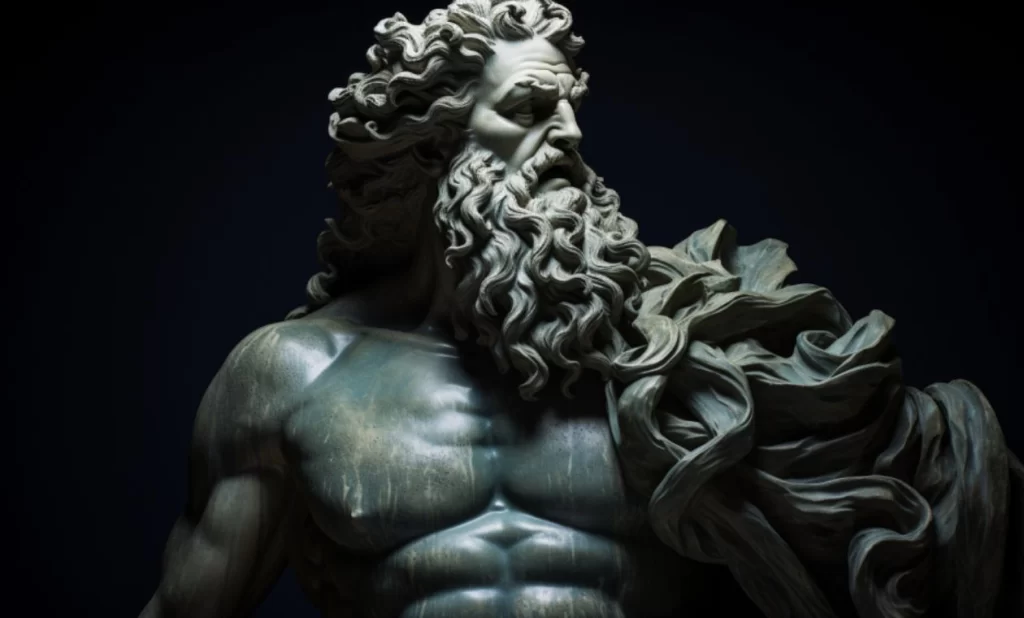
Throughout ancient Rome, various festivals and celebrations were dedicated to Neptune, the powerful god of the sea and earthquakes. These festivities provided an opportunity for communities, particularly seafaring regions, to honor and seek the favor of Neptune, offering gratitude and supplication for safe voyages, abundant catches, and protection from the forces of the sea. Here are some notable festivals dedicated to Neptune:
Neptunalia:
The Neptunalia was an annual summer festival held in Rome in honor of Neptune. Celebrated on July 23rd, this festival was a joyful occasion that involved elaborate processions, music, dancing, and feasting. Participants would wear wreaths of flowers and engage in water-related activities, such as swimming and splashing water on one another, as a means to cool off during the hot summer days. The Neptunalia was a time to pay homage to Neptune and seek his blessings for favorable weather and fruitful waters.
Quinquatrus Neptuni:
The Quinquatrus Neptuni was a five-day festival celebrated from March 19th to March 23rd, primarily in the Roman port city of Ostia. This festival was dedicated to Neptune and was especially significant for sailors and those involved in maritime activities. The festivities included processions, sacrificial rituals, and theatrical performances. Participants would make offerings to Neptune, seeking his protection and guidance for safe journeys on the sea.
Consualia:
While not solely dedicated to Neptune, the Consualia festival held on August 21st and December 15th in ancient Rome included the celebration of Neptune’s role as a god of water and fertility. During these festivals, offerings were made to Neptune at the underground altar of Consus, a god associated with grain storage and harvest. The Consualia involved horse races and chariot races held near the Circus Maximus, bringing together the community in merriment and homage to the deities.
Navalia:
The Navalia, also known as the Naval Games, was a grand festival held in Rome during the Roman Republic. Although not solely dedicated to Neptune, this event included ceremonies and spectacles honoring Neptune as the protector of sailors and the sea. The festival involved elaborate naval parades, boat races, and mock naval battles conducted on the Tiber River. The Navalia celebrated the city’s maritime power and sought Neptune’s blessings for prosperous naval ventures and maritime dominance.
Neptune’s worship to seafaring communities and sailors
The worship of Neptune held immense importance for seafaring communities and sailors in ancient Rome. As the god of the sea, Neptune was regarded as their ultimate protector, bestowing his blessings and safeguarding them during their perilous voyages. The significance of Neptune’s worship to seafaring communities can be highlighted in the following ways:
Safe Passage: Seafaring communities relied on the sea for their livelihoods and trade. They recognized the inherent dangers of maritime journeys, including storms, treacherous waters, and unpredictable weather conditions. By worshipping Neptune, sailors sought his divine protection, hoping to ensure safe passage through the vast and often treacherous seas. Neptune’s favor was believed to shield them from shipwrecks, storms, and other perils that could threaten their lives and livelihoods.
Abundant Catches: Fishing played a vital role in the lives of seafaring communities. By worshiping Neptune, fishermen and sailors sought his favor in providing bountiful catches. They believed that by honoring the sea god, he would ensure an abundance of fish and other marine resources. Neptune’s blessings were seen as crucial for sustaining their communities and ensuring their prosperity.
Navigational Guidance: In an era without modern navigational aids, sailors relied heavily on their knowledge of the stars, wind patterns, and the sea’s behavior. Worshiping Neptune was seen as a means to gain his favor and guidance in navigating safely through uncharted waters. Sailors looked to Neptune to provide them with favorable winds, calm seas, and knowledge to navigate their ships effectively. They sought his assistance in finding safe harbors and avoiding treacherous shoals or reefs.
Rituals and Offerings: Seafaring communities and sailors engaged in rituals and made offerings to Neptune as acts of devotion and supplication. These rituals typically took place before embarking on a voyage or upon returning safely to port. Offerings such as incense, wine, and symbolic objects were made to appease Neptune and express gratitude for his protection. Seafarers also conducted ceremonies and performed libations to honor the sea god, seeking his continued favor and benevolence.
Sense of Community and Solidarity: Neptune’s worship fostered a sense of community and solidarity among seafaring people. It provided a shared belief system and a common thread that connected sailors and communities with a reverence for the sea. Through Neptune’s worship, seafarers found solace, unity, and a collective sense of purpose, strengthening their bonds and providing them with a sense of identity and belonging.
Influence in Art and Culture:
Neptune’s influence in art and culture has left an indelible mark throughout history. As the god of the sea and earthquakes, his power, mystique, and association with water have inspired artists, architects, writers, and thinkers across various mediums. Here are some key aspects of Neptune’s influence in art and culture:
Sculpture and Statuary: Neptune’s iconic representation in Roman art often depicts him as a powerful figure with a regal stance, holding his signature trident. Sculptures and statues of Neptune adorned public spaces, temples, and fountains, serving as a symbol of the sea’s might and the reverence for his dominion. Notable examples include the Trevi Fountain in Rome, featuring a grand statue of Neptune at its center, and countless other sculptures found in museums and archaeological sites.
Mosaics and Frescoes: Neptune’s presence can be seen in intricate mosaics and frescoes throughout ancient Roman villas and public buildings. These vibrant artworks often portrayed scenes of Neptune in his chariot pulled by sea creatures or engaging in activities related to his domain, such as controlling the waves or calming storms. These visual representations celebrated Neptune’s power and evoked a sense of awe and respect for the sea.
Naval Imagery and Maritime Symbolism: Neptune’s association with the sea and sailors influenced the symbolism and imagery related to maritime themes. Ships, sea creatures, tridents, and waves became popular motifs in various art forms, including paintings, tapestries, and decorative objects. These elements were often employed to evoke Neptune’s presence and capture the essence of the maritime world.
Architecture and Fountains: Neptune’s influence extended to architectural designs, especially in relation to water features and fountains. Architects incorporated Neptune-themed elements in grand structures, utilizing water as a central element to evoke Neptune’s presence and symbolize his dominion. Fountains dedicated to Neptune were built in public squares and gardens, where the sound and flow of water paid homage to the god of the sea.
Literary and Poetic References: Neptune’s power and character have inspired countless writers, poets, and playwrights throughout history. References to Neptune and his mythological tales can be found in ancient Roman literature and continue to appear in works of fiction, poetry, and drama to this day. His influence in literature often explores themes of power, the forces of nature, and the human relationship with the sea.
Neptune in Modern Interpretations:
Neptune, the Roman god of the sea and earthquakes, continues to captivate and inspire modern interpretations in various forms of art, literature, and popular culture. His rich mythology and symbolic significance have resonated with contemporary artists, writers, and filmmakers, leading to new and imaginative portrayals. Here are some aspects of Neptune’s presence in modern interpretations:
Visual Arts: Artists today draw inspiration from Neptune’s imagery and incorporate his character into contemporary artworks. Paintings, digital art, and illustrations often depict Neptune with a modern twist, combining classical elements with contemporary styles. His association with the sea, aquatic life, and mythological themes provide a canvas for creative interpretations and explorations of his character.
Literature and Fantasy Fiction: Neptune’s allure can be found in modern literature, particularly within the fantasy and mythological genres. Writers create new narratives and worlds that incorporate Neptune as a deity or draw upon his influence. These stories often explore themes of adventure, the power of nature, and the conflicts between mortals and gods.
Film and Television: Neptune’s presence in popular culture extends to film and television. In movies and TV shows, his character might appear in epic mythological adaptations or contemporary reimaginings. The themes of the sea, exploration, and elemental forces find their way into the storytelling, offering a fresh take on Neptune’s persona and his impact on human lives.
Video Games: Neptune’s mythological attributes and association with water make him a fitting character in video games. He can appear as a deity, a boss battle, or an ally in various gaming worlds. These interactive experiences allow players to immerse themselves in Neptune’s realm and encounter the challenges and mysteries associated with the sea.
Fashion and Design: Neptune’s aesthetic qualities, such as his trident, flowing hair, and connection to water, have inspired fashion designers and influenced design elements. His symbol, the trident, can be incorporated into jewelry, accessories, and fashion motifs, lending a touch of mythical allure and power to the wearer’s style.
Conclusion
Neptune, the mighty god of the sea and earthquakes in Roman mythology, holds a prominent place in ancient legends and continues to captivate modern interpretations. From his origins and association with the Greek god Poseidon to his symbolism as the ruler of the seas and his role in earthquakes, Neptune’s mythological persona is rich with power, unpredictability, and creative prowess.
The stories surrounding Neptune, such as the creation of horses, his involvement in “The Odyssey,” the rape of Medusa, and the contest with Minerva, offer glimpses into his powers, personality, and interactions with other gods and mortals. These tales reveal Neptune’s strengths, flaws, and the consequences of his actions, highlighting his complex nature and influence in the mythological realm.
Neptune’s worship held significant importance for seafaring communities and sailors, who sought his protection during their voyages. The festivals dedicated to Neptune provided an avenue for expressing gratitude, seeking blessings, and fostering a sense of unity and belonging among those whose lives depended on the sea. The reverence for Neptune extended to art and culture, where his image and symbols found expression in sculptures, mosaics, frescoes, and architectural designs.
Even in modern times, Neptune’s influence can be felt in various forms of art, literature, film, and popular culture. His enduring appeal and relevance continue to inspire creative interpretations and adaptations, keeping his mythological legacy alive.
In conclusion, Neptune’s role in Roman mythology and his depiction as the god of the sea and earthquakes have left an indelible mark on ancient and contemporary cultures alike. From ancient worship to modern interpretations, Neptune’s power, symbolism, and influence endure, reminding us of the timeless fascination with the forces of nature and the captivating realm of mythology.
Hey kids, how much did you like Neptune: The Mighty Roman God of the Sea and Earthquakes? Please share your view in the comment box. Also, please share this story with your friends on social media so they can also enjoy it, and for more such Roman Mythology, please bookmark storiespub.com.
Related Article –






